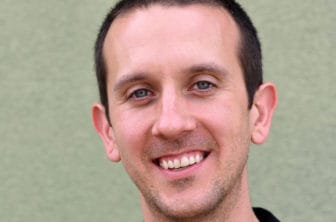COMMENTARY: Time Magazine reported last week on the “online disinhibition effect” – the idea that “anonymity, invisibility, a lack of authority and not communicating in real time” on social media “strip away the mores society spent millennia building.”
We call the worst offenders trolls. A 2014 study “found that the approximately 5% of Internet users who self-identified as trolls scored extremely high in the dark tetrad of personality traits: narcissism, psychopathy, Machiavellianism and, especially, sadism,” Time reported.

Heath Haussamen
Trolling affects all of us. Another study found that those exposed to good deeds on Facebook were more likely to report doing good deeds themselves, according to Time. “But the opposite is likely occurring as well,” the article states.
“When people think it’s increasingly O.K. to describe a group of people as subhuman or vermin, those same people are likely to think that it’s O.K. to hurt those people,” Time quoted Susan Benesch, founder of the Dangerous Speech Project at Harvard’s Internet and Society center, as saying.
As someone who runs a news website and active Facebook and Twitter pages, I work to understand how people express what they’re thinking and feeling – and why. Dehumanizing comments threaten discussions. I regularly have to defend my choice to not allow name-calling at NMPolitics.net.
I’m trying to build a space where we can work together to improve society. Name-calling silences certain folks. Some days it’s immigrants, others it’s Donald Trump supporters.
This is personal for me. In college, the New Mexico State University community debated whether I was racist. I’ve been labeled a terrorist because of my Lebanese heritage. I was once called “an American nightmare” in a letter to the editor.
I know black men, police officers, Trump supporters and immigrants who are good people. In my experience, when people with different views engage in thoughtful, inquisitive and compassionate discussion, productive things happen. That’s as true on social media as it is in person.
There’s so much about others I want to better understand. I don’t know what it’s like to be black and stopped by police more often than I am. I don’t know what it’s like to be a police officer helping carry the casket of a fallen colleague.
We can argue about who’s a bigger thug or we can work to understand both so we can address police shootings of citizens and attacks on officers.
I don’t know what it’s like to be a white person who lost a union job and pension to NAFTA and Mexico, lost a home to 2008 recession, then lost a lower-wage job with fewer benefits to an immigrant who would to work for less. I don’t support the human tendency to blame immigrants, but the anger, shame and fear people carry is valid.
We can marginalize and call people racist, or we can acknowledge their pain and involve them in solutions.
I don’t know what it’s like to live in a dangerous nation like Mexico and try to enter the United States in the quickest way possible seeking work and a safer community.
We can call people illegals, or we can admit that our economic and drug policies, broken immigration system, and decades of letting employers hire workers without legal status effectively invited people in. And we can listen to their stories as we discuss where to go from here.
We all have stories. It’s so important to share ours and listen to others. Seeing and empathizing with each other will help us work toward a better future for all of us.
